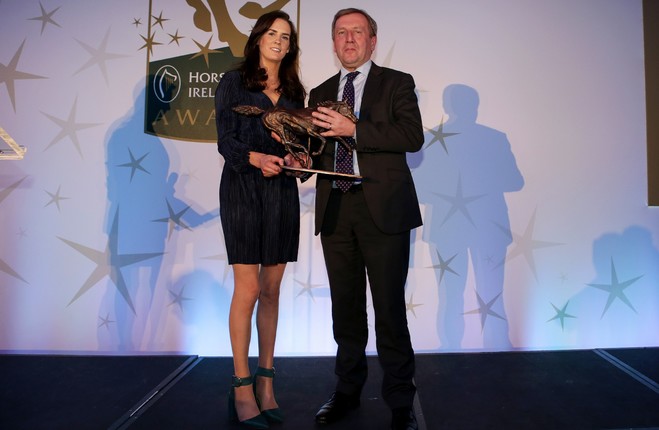Updated at 17.25
AS THIS DECADE nears its end, democracy perhaps never so questionable and climate change the only thing that matters, Irish racing is hardly at the summit of priorities.
Somehow, the United States and United Kingdom’s populations voted in Donald Trump and Boris Johnson respectively as leaders, which is almost as depressing as the fact that this pair of buffoons ended up being the best options available to the Conservatives in either nation.
These are interesting times, if you want to be as glib as is becoming the political norm. As a friend messaged me on Thursday evening, “2019 Reeling In The Years will be quite nice to look at. We will explain it to our children. We will have no answers.”
I struggled to sleep last night but most of us woke this morning, some tending to horses in the bitter cold of the winter dawn. Racing people are perhaps more wrapped up in their sport and profession to the exclusion of other matters than most, yet they can certainly ask what all of this means on this island.
A no-deal Brexit is disastrous on many levels, including racing — although there have been indications lately that such as scenario is likely to be avoided. “In the event of Britain crashing out without a deal it would be recognised as a third country and the EU requires movement from third countries to go through border inspection posts,” Brian Kavanagh told the Irish Times back in January.
This being Brexit, little or no progress was realised throughout the year, and Johnson’s ‘Get Brexit done’ manifesto, which effectively won the day, was an empty soundbite nevertheless enough for a weary population who want to get on with their lives.
Intriguingly, Kavanagh, when asked by The42 what his response was to the Tories’ electoral landslide, was looking at it positively. This is despite the reality that a Labour victory might have entailed a second vote on Brexit.
“I think it’s probably a good outcome,” Kavanagh said, “as it brings certainty to the situation,” sounding almost as fatigued by the past few years as the British voter.
Brexit will happen in January and there will be a transition period where the status quo remains. This will allow space to finalise longer-term arrangements.
“The lift in sterling’s exchange rate is a positive for racecourse media rights income too.”
The sterling’s improvement will also be an incentive for Irish owners to target British races, but there remains a great deal of uncertainty about the movement of horses between the islands, and in theory between southern trainers and Down Royal or Downpatrick.
Of great significance too is the changing picture in the Republic, a general election now a certainty in the next few months, with Fianna Fáil and Fine Gael fighting over each other to achieve a more presentable reason to end this government’s reign, thereby going to the polls with a narrative to suit themselves. The portents are not good for Fine Gael.
Four lost by-elections of late have put pressure on Leo Varadkar, who gives the impression that he is reeling, and there are enough people pissed off about with the government, be they farmers, house hunters or in need of a functioning health service, for a change not to seem more likely than not.
At the Horse Racing Ireland awards night Tuesday, Minister Michael Creed was again guest of honour, and there seems to be no end to his commitment to racing. Fine Gael has been good for the sport, with the €67.2 million annual funding for the sport continuing in 2020.
HRI has excelled in promoting the economic value of racing, especially in rural Ireland, but it now seems likely that Micheál Martin will be the next Taoiseach, heading a government of the soldiers of dynasty and whatever left-wing partner or partners.
Irish racing, rather like the Arabs and oil, has recognised that it cannot rely on government funding indefinitely, hence the change in taxation of bookmakers here in recent years. Yet we remain reliant too on a flourishing scene in retail in Britain, which is a concern.
The supply of pictures from Irish racing to cross-channel betting shops is a central element to the sport’s media rights deal announced last year and which runs until 2023. Retail, due to changes to FOBTs (fixed odds betting terminals) rules, is in a perilous enough state in Britain, while it is too early to tell how shops will fare here subsequent to the government’s decision to double betting tax (with a key exemption for smaller bookmakers).
And if North Belfast can elect a Shinner, nothing is sacred anymore.
Jim Bolger shares my misgivings on Boris, sending a link to an article exposing his lies on Whatsapp nearing 11pm earlier this week. His Assurance looks a good thing in Dundalk’s Irish Stallion Farms EBF Fillies Maiden (5.45).
And Dinny Lacey can take Sunday’s John Lynch Carpets Maiden Hurdle (1.00), part of a cracking card at Navan.
Dinny Lacey can deliver on his promise. Whatever about Boris.
- Originally published at 13.34
The42 is on Instagram! Tap the button below on your phone to follow us!

